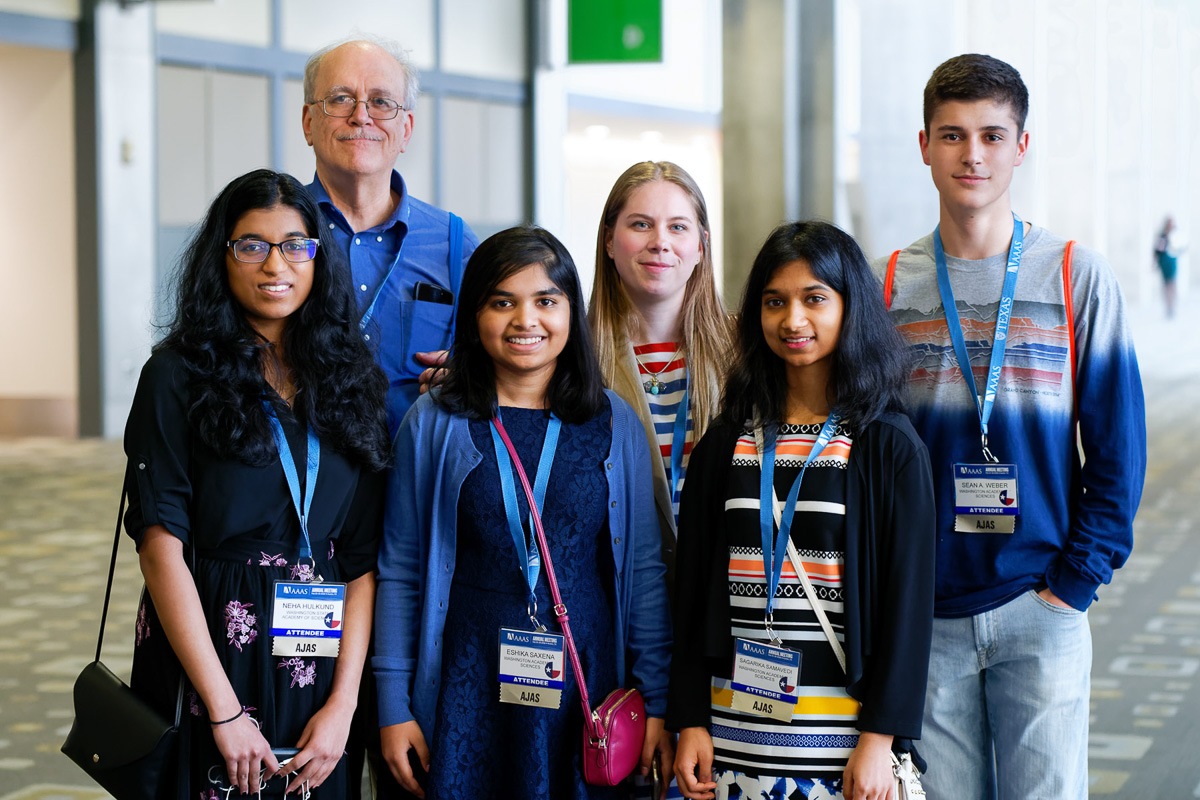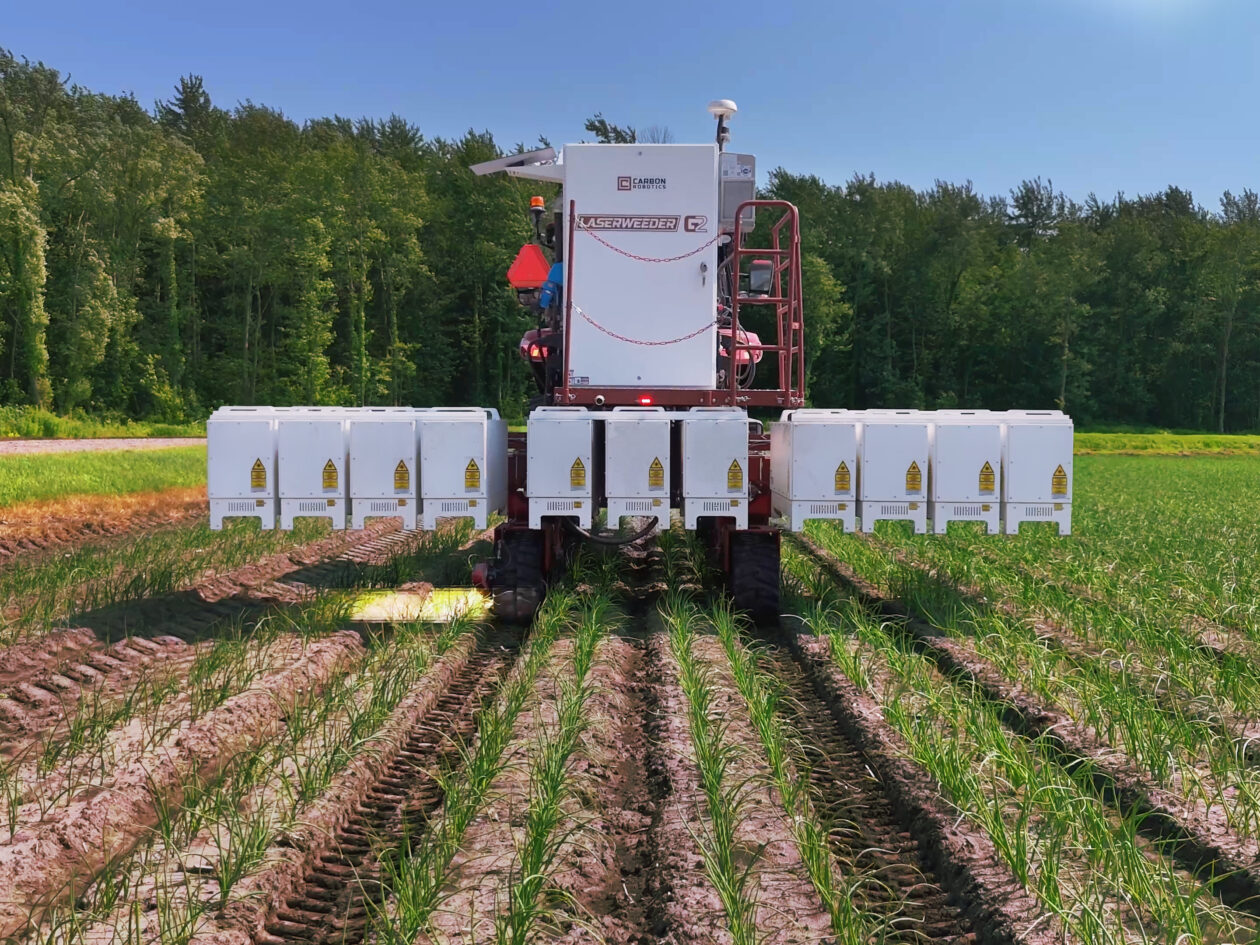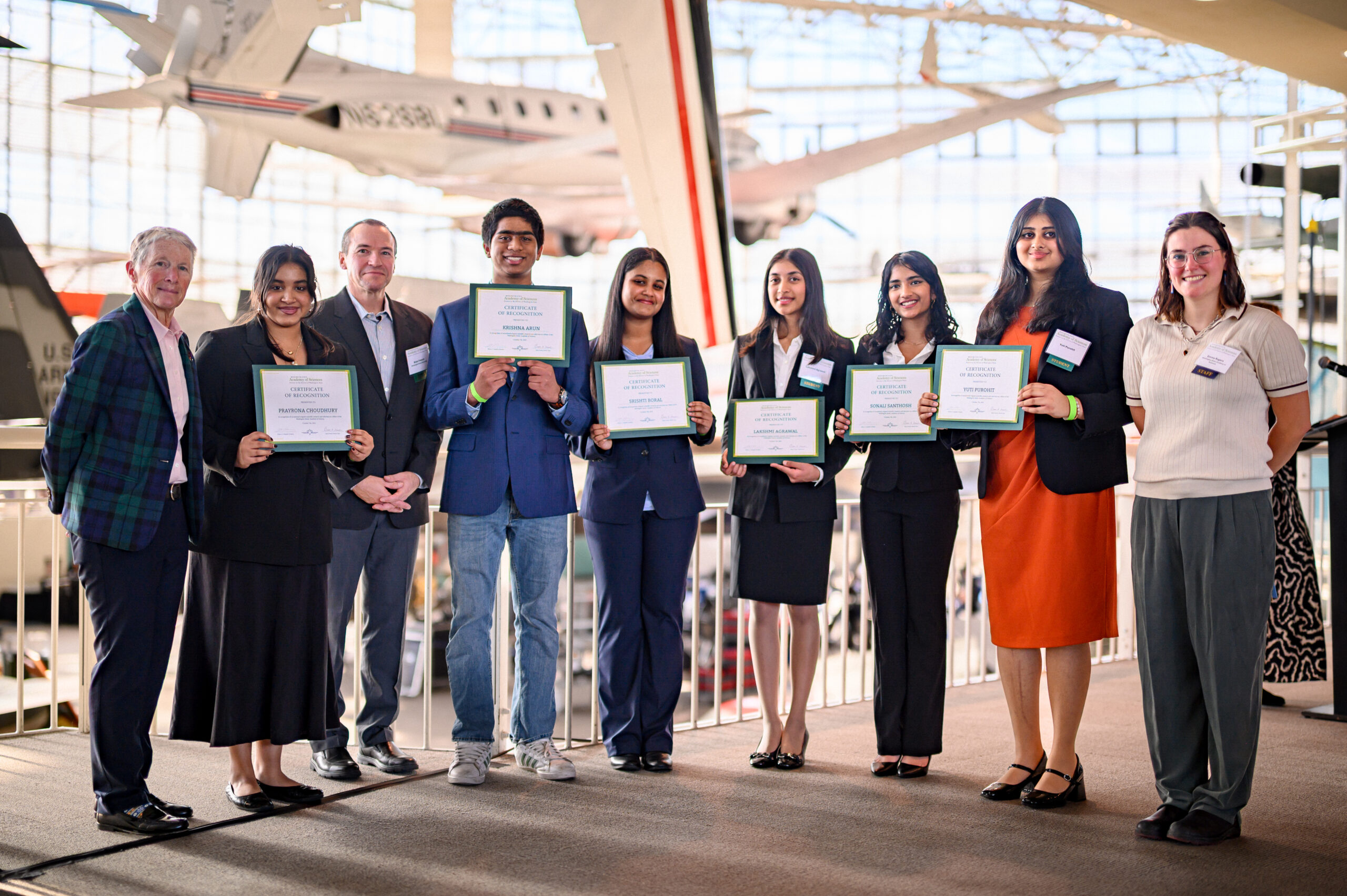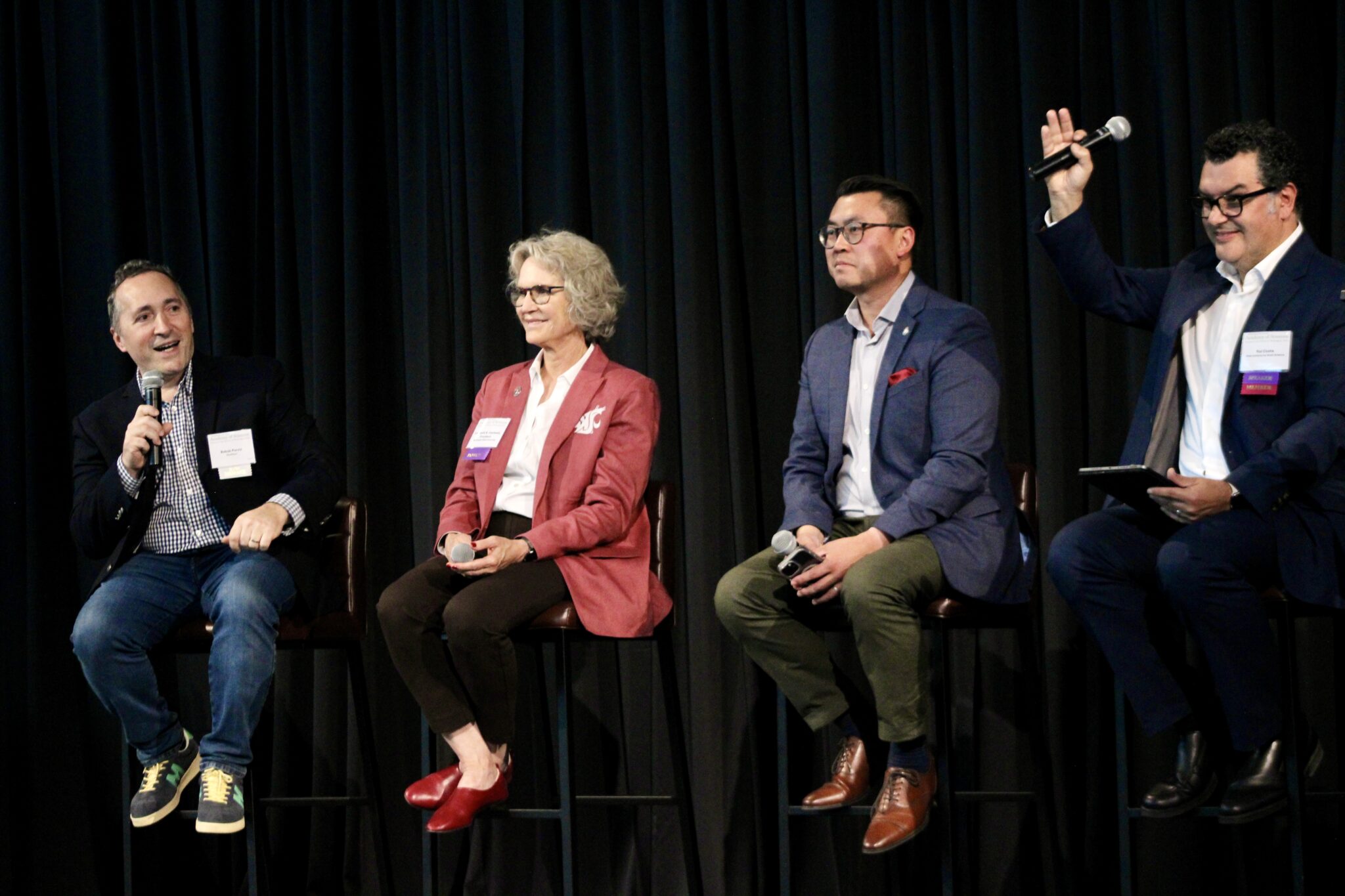
Every year WSAS selects several outstanding high school students to be inducted to the American Junior Academy of Sciences (AJAS) on behalf of Washington State, and supports their travel to the AJAS meeting held in conjunction with the American Association for the Advancement of Science (AAAS) annual meeting. Usually WSAS selects only two students for this prestigious honor, but the 2018 applicants were so impressive that four were selected. In February, 2018 WSAS awardees Neha Hulkund, Sagarika Samavedi, Eshika Saxena, and Sean Weber, traveled to Austin, Texas with WSAS Program Coordinator Devon Emily Thorsell and Education Committee member Gary Foss to attend the 184th AAAS meeting. The meeting, whose theme was Advancing Science: Discovery to Application, provided these young scientists the opportunity to share their application-based research proposals, which ranged from computational techniques for monitoring and predicting human disease to new approaches for fuel production and oil spill clean-up, with the broader scientific community.
At the conference, students were invited to explore their own research interests in cutting-edge science while also learning about the critical roles of academia, government, and industry in moving ideas into innovations. Students received feedback on their research through poster sessions, attended presentations by prestigious researchers, and toured state-of-the-art labs. They also interacted with a variety of scientific professionals giving them a sense of the diversity of career paths a scientist may take. During her address to meeting attendees, AAAS President Dr. Susan Hockfield, a distinguished professor of neuroscience, former Yale Provost, and President of MIT, recognized the new AJAS inductees and welcomed them to the scientific community.
WSAS’s four student awardees, Neha Hulkund, Sagarika Samavedi, Eshika Saxena, and Sean Weber, attended the meeting of the American Junior Academy of Sciences (AJAS), held in conjunction with the 184th meeting of the American Association for the Advancement of Science (AAAS), Feb 14-19 in Austin, TX. Our students’ application-based research proposals ranged from computational solutions of medical issues such as epilepsy and cardiovascular health to chemically engineering new fuels and oil spill clean-up, all extremely relevant areas for Washington State. This year’s theme for the AAAS meeting was Advancing Science: Discovery to Application, which encouraged our students to explore their own research interests while introducing them to cutting edge solutions and advance their own applications.
During the conference, students attended presentations from prestigious researchers, toured of state-of-the-art labs, attended AAAS sessions and plenary talks, and explored Austin. Most importantly, they had the opportunity to ask questions of professional scientists and were given access to some of UT Austin’s most restricted research labs, inspiring them to continue with their own love of scientific exploration and research that can better their communities. The AJAS Fellows were recognized at the AAAS President’s Address and shared their posters and oral presentations with AAAS meeting attendees, allowing them to explore and communicate the impact of their research and step into the vigorous research world.
AJAS awardees are selected by the WSAS K-12 Education Committee after participating in statewide science and engineering fairs. WSAS invites the top award winners at each fair and competition to apply for our award by submitting their research report, a personal essay, and their high school transcript. In 2017, we had 11 applicants, many of whom were exceptionally qualified to receive our award, which is why we chose to sponsor two more students than in 2016.
WSAS is committed to cultivating and encouraging the next generation of scientists. The WSAS K-12 Education Committee invites the top award winners at statewide science and engineering fairs to apply for the WSAS young scientists award by submitting their research report, a personal essay, and their high school transcript. WSAS members can help mentor young scientists by volunteering at local and state-wide science fairs. To find a science fair in your area, visit: http://wssef.org/fairs-events/. If you are interested in helping WSAS select its AJAS awardees, please consider joining the K-12 Education Committee as an application reviewer by contacting its chair, Pinky Nelson at nelson.pinky@hotmail.com. If you or your organization is interested in sponsoring our K-12 Programs, please contact WSAS Program Coordinator Devon Emily Thorsell at devon.thorsell@washacad.org
Related Posts
January 23, 2026
A new initiative from the Washington State Academy of Sciences called Growing with AI will bring together the state’s tech giants and diverse farming community to tackle pressing challenges in the agriculture industry.
October 28, 2025
WAJAS is a WSAS program recognizing exceptional high school students from across the state for outstanding original scientific research and offering opportunities to connect with the research community in Washington and beyond. Fellows were publicly honored alongside Washington's top researchers at the WSAS 20th Anniversary Celebration on October 7.
October 14, 2025
Amid political polarization and uncertain federal research policy, Washington leaders are betting on stability through a unique innovation ecosystem rooted in the state’s institutions and businesses. That was a theme at the 20th anniversary celebration of the Washington State Academy of Sciences, held Tuesday evening at Seattle’s Museum of Flight.


